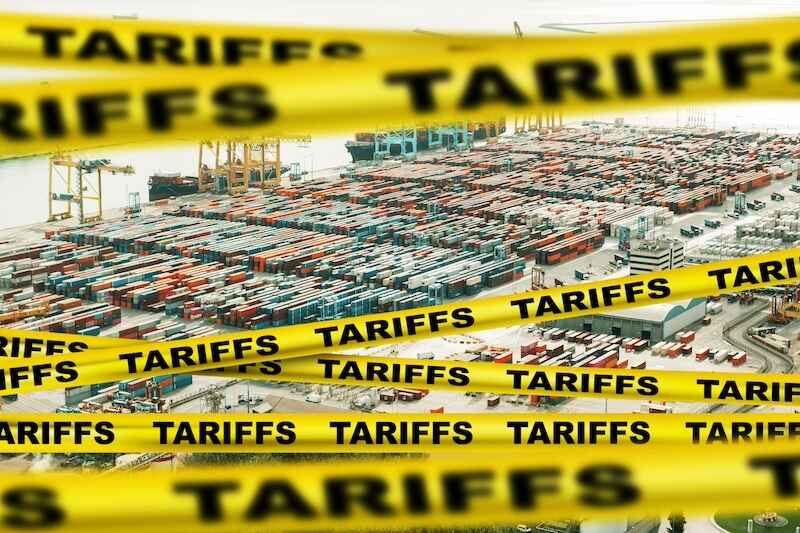This New Regulation Could Ruin Retail’s New Squeeze Play
Shah Gilani|February 3, 2021
On Monday, I talked about our latest endeavor, going where Total Wealth has never gone before.
If you haven’t had a chance yet to read up on what it means for you, go here. In short, we’re now following Seven Seismic Shifts – seven themes that will provide us with the greatest moneymaking opportunities the world’s ever seen. The themes are 1) pandemics, 2) politics, 3) environment, 4) taxation and regulation, 5) trading and investing, 6) Federal Reserve insanity, and 7) China.
In keeping with our themes, today, we’re going where no retail traders or investors, especially those who scored huge gains driving up GameStop Corp. (NYSE:GME) and other highly shorted stocks, want regulators to go – because it would ruin the new game they just learned to play.
Seismic Shift #5 is about changes in how we trade and invest, and nothing’s more seismic than regulatory changes.
And believe me, we’re going to get some new ones, maybe sooner than later…
Changing Up the Game in Congress
With everyone from Alexandria Ocasio-Cortez to Ted Cruz, to Elizabeth Warren calling for investigations, and in Warren’s case for the SEC to “grow a backbone,” something’s going to derail the gravy train retail traders just rode to crazy heights.
The quick and easy “fix,” if you want to call it that, would be to actually enforce existing regulations that cover what traders must do if they want to short stocks.
GameStop is the perfect example.
The short story (yes, that’s a pun) on GameStop, and the other stocks retail traders squeezed to crazy heights, is they were all highly shorted.
In GameStop’s case, the company was considered dead meat by hedge funds who had been shorting the bricks and mortar retailer of video games.
Their mistake was shorting it too much, way too much, with too much leverage, and illegally.
Illegally is the key. What no one anywhere is bringing up, maybe because they don’t know, is that hedge funds shorting the heck out of GME weren’t complying with SEC and exchange regulations.
Those regulations require investors who want to short a stock to first “locate” it, which is a process that entails their brokerages or their prime broker calling around to see who has stock in their inventory, and then actually “borrowing” it, so when short sellers sell stock short, the buyer on the other end of their trades gets possession of shares, electronically that is.
Clearly, hedge funds who shorted massive amounts of GME didn’t locate or borrow shares.
Using Yahoo Finance’s “statistics” page for stocks listed by their ticker symbol, GME has 69.75 million shares outstanding. The number of shares that “float,” meaning shares available to trade as opposed to being held by insiders or locked up in the company’s treasury, is 46.89 million shares. At the height of the stock being shorted its “short ratio,” the number of shares that had been shorted as a percentage of floating shares, reached 260%.
That means there were more shares shorted than floating or outstanding, a lot more.
While it’s possible for a stock to have a short ratio greater than 100%, because shares that get bought over and over can be lent out over and over, technically speaking, but that situation shouldn’t last too long. When a new buyer of a highly shorted stock wants his shares to show up in his account, back offices issue “buy-ins” to firms who owe them shares and if you’re short and get a buy-in notice, you have to cover your shorts and “deliver” the shares you sold.
Really, all regulators have to do to prevent hedge funds from overly shorting any stock is to enforce locate and borrow rules.
If those regulations were properly enforced, stocks wouldn’t end up with short ratios that attract retail marauders looking to squeeze shorts and drive prices of shorted stocks through the roof.
If I’m a retail trader who just made a killing playing that game, or I just caught wind of how lucrative that kind of play can be, I sure wouldn’t want those regulations enforced to the letter of the law.
Before that kind of quick fix is applied, you might want to play the short squeeze game while it’s still a winning strategy.
But you don’t have to wait until then to get some stock picks. I know new traders and veterans alike a rearing to get their hands on the gains made in this past week, and I have just the thing to tide you over.
In my Buy This, Not That seminar, I go over 50 stocks by name to reveal toxic industry darlings that could drag down your 401(k) and unlikely underdogs that I feel are a must-buy for anyone and everyone, no matter the size of your portfolio.
These are recommendations you won’t likely find anywhere else, not even on the desk of your financial advisor. If you want to start playing, you have to get in the game.
Sincerely,
![]()
Shah Gilani

Shah Gilani
Shah Gilani is the Chief Investment Strategist of Manward Press. Shah is a sought-after market commentator… a former hedge fund manager… and a veteran of the Chicago Board of Options Exchange. He ran the futures and options division at the largest retail bank in Britain… and called the implosion of U.S. financial markets (AND the mega bull run that followed). Now at the helm of Manward, Shah is focused tightly on one goal: To do his part to make subscribers wealthier, happier and more free.

